Pen & Paper with Laura Kurz

I know writing, and journaling, can be incredibly intimidating for a non-writer. But I want you to think about what the real point of your memory keeping is. I think, for most of us, the point is to create a record for future generations. But imagine some of your best memories, the stories you want your grandchildren, your great-grandchildren to know not being recorded because you are not sure how to document them beyond a picture and a title. In Pen and Paper, I’ll walk you through many different ways to approach journaling - from letter writing to using quotations when you just can’t find the words.
I'm working with 5 amazing contributors in this class, and wanted to share some of their thoughts on journaling.
Pam Baldwin : I recently came across a really cool poster on Pinterest that said, "A picture can tell a thousand words but a few words can change its story. - Sebastyne Young" (http://www.pinterest.com/pin/152559506102674974/). It really hit home about why journaling is so important. I scrapbook for a lot of reasons, but a major one is for my kids. My kids are still so little, they'll likely have very few memories of these early years....but I suspect that one day they'll be curious (even if it's not until they have kids of their own!). Looking at pictures can tell some of the story, but having words to go along with them paints a much clearer picture. The pictures are often of smiley, happy children. You'd think they were like that all the time. I assure you, that is most definitely NOT the case. I like how a little journaling can tell a more complete story, challenges and frustrations and all, and even in those trying moments they'll know that they are loved.

Jill Sprott : A solid design, a lovely color combination, evidence of a fun, artsy technique or two, some eye-catching papers, and a great photo — but what does it all mean? Perhaps you know what it means, because it is your memory, your emotion, translated into the form of a layout, but will you always recall this moment the same way? Will you always remember the details as you remember them now? Will others, looking at this page, know just what it all means to you?
A page is not complete for me unless I have added words, connecting the subject of the page with my own subjectivity. Words do not just affirm or enrich the meaning of a page — they make meaning, in ways that no other aspect of the scrapbooking process can.
To this day, when I look back at pages that I created two or five or ten years ago, I first notice the photo, and then I read the journaling. My daughter and husband do the same, often exclaiming, “I had forgotten that!” or laughing at some funny detail, which tells me that, had I chosen to omit words, I would have eliminated something essential from these pages. I would have eliminated our stories. I would have eliminated memory and meaning.
This is why I always compare scrapbooking to Robert Frost’s view of poetry — it is “a way of remembering that which it would impoverish us to forget.”

Elizabeth Dillow : Stories are the string that connect one generation to the next, and I feel so strongly about making sure stories are part of my family’s regular conversation—at the dinner table, in the car, on hikes, wherever. We tell stories about the funny things that happen to us, “knucklehead”stories from my husband’s childhood that serve as hilarious cautionary tales, and stories that help us feel less alone in the world. The next logical step is to prevent as many of these stories as possible from getting lost. Putting pen to paper (or fingers to keyboard) is the very best way to make sure this happens.

Magdalena Hanell : For me journaling is most of all documenting things for our two children. I want them to remember moments from growing up, both our everyday and special occasions. I want them to know who I am and what went on in my life when they were little. And I want them to know their family and their roots. My grandmother told me so many stories that I was too young to understand that I should be writing down, and now when I want to hear those stories again she's not here to tell them anymore. I want to give my children a gold mine of stories and pictures to dig into when they are all grown up.

Melanie Louette : When I look back on older pages I've done, the most important and precious thing to me is what I have written about the photo (s) on the layout. It doesn't matter if it's an anecdote, factual bullet journaling, or an emotional bit of writing. I don't really even care much at all about the design of the page or what stuff I've used on it- that is secondary when you really think about it. Getting down facts and stories is the reason I started scrapbooking in the first place, especially given that I have a terrible memory!
The layout I chose here is one of my favourites. I love the photo and I love that I wrote down these things about my son and I when he was that age- I don't remember half of them today. Also, this page is as simple as you could ever get, so the photo and words take center stage.

Pen and Paper is enrolling now through September 30th. The first two lessons have already been posted, so you'll be able to jump right in! We hope to see you in the classroom.

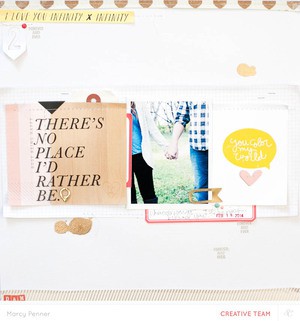

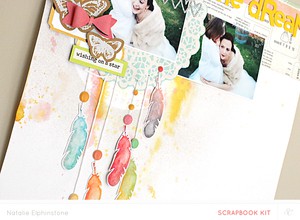
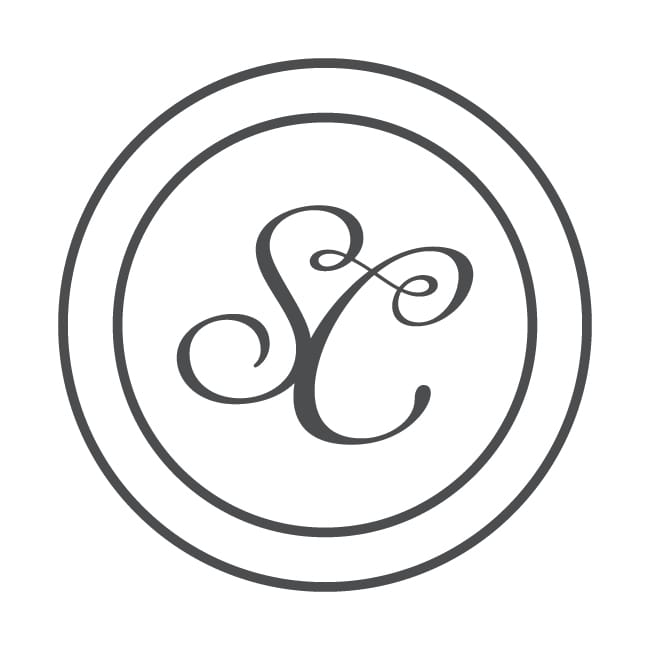
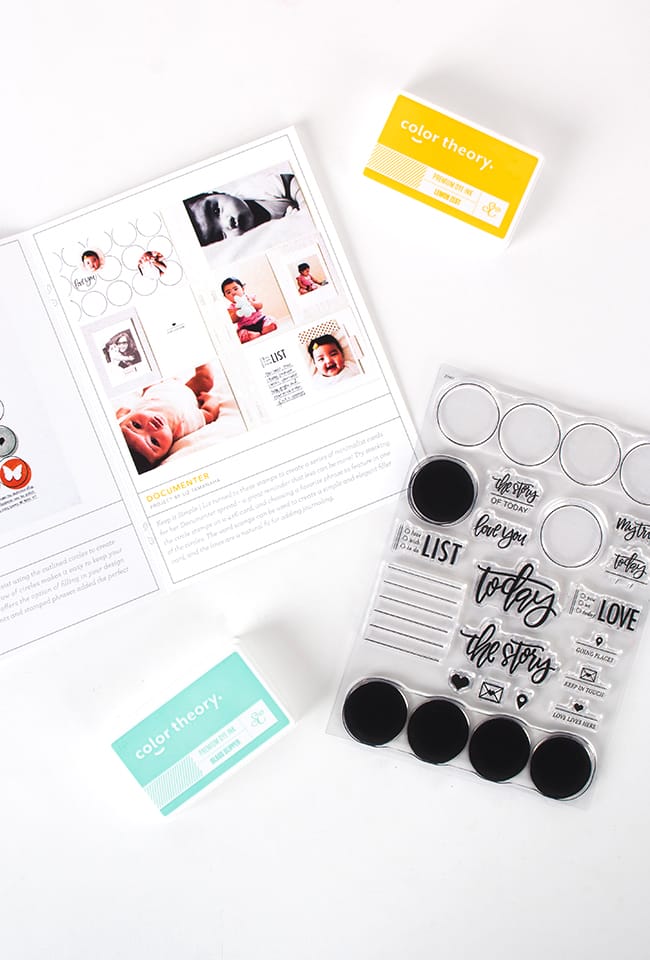






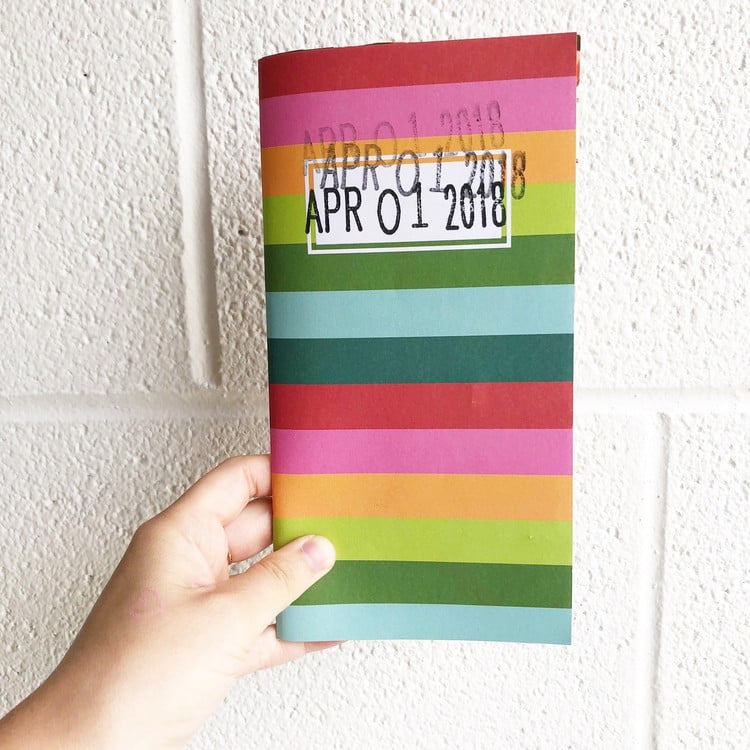
I am so happy I signed up for this class. It really is one of my favourites! It's reminded me why I started scrapbooking in the first place. It's reminded me to write down all these little things that go whirling by me as my baby girls grow & change so fast. Laura is awesome! (and so are the contributors).
Sign in or sign up to comment.